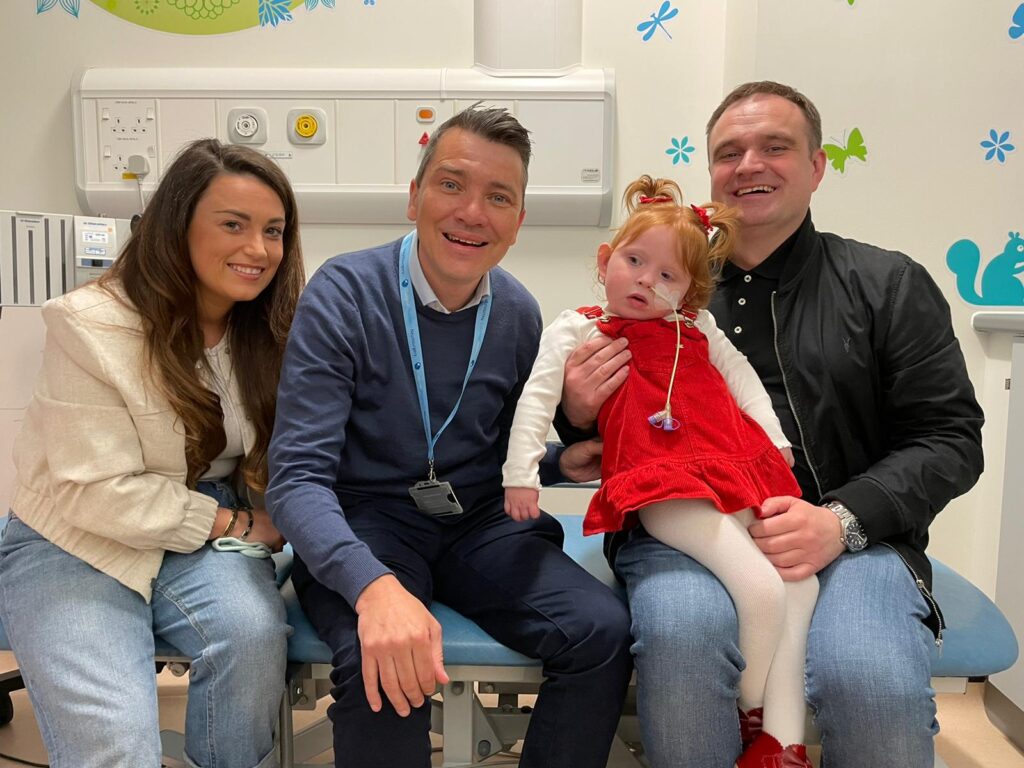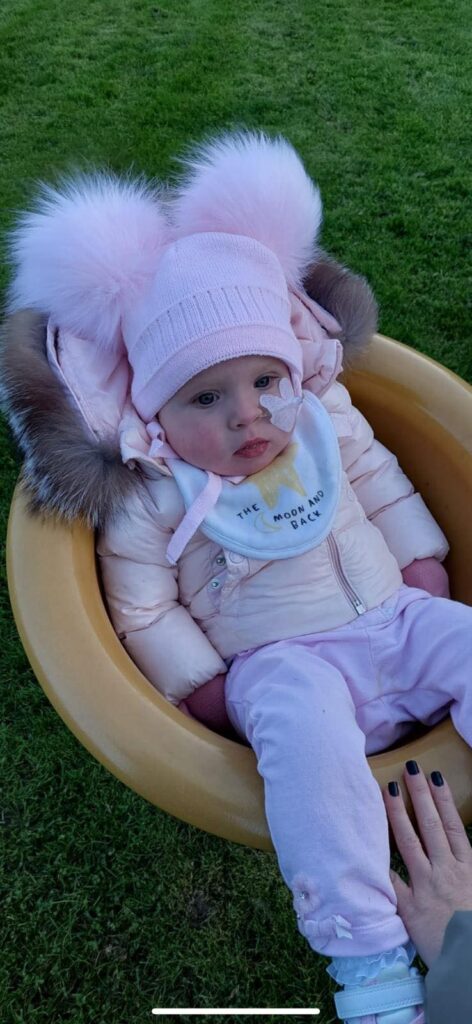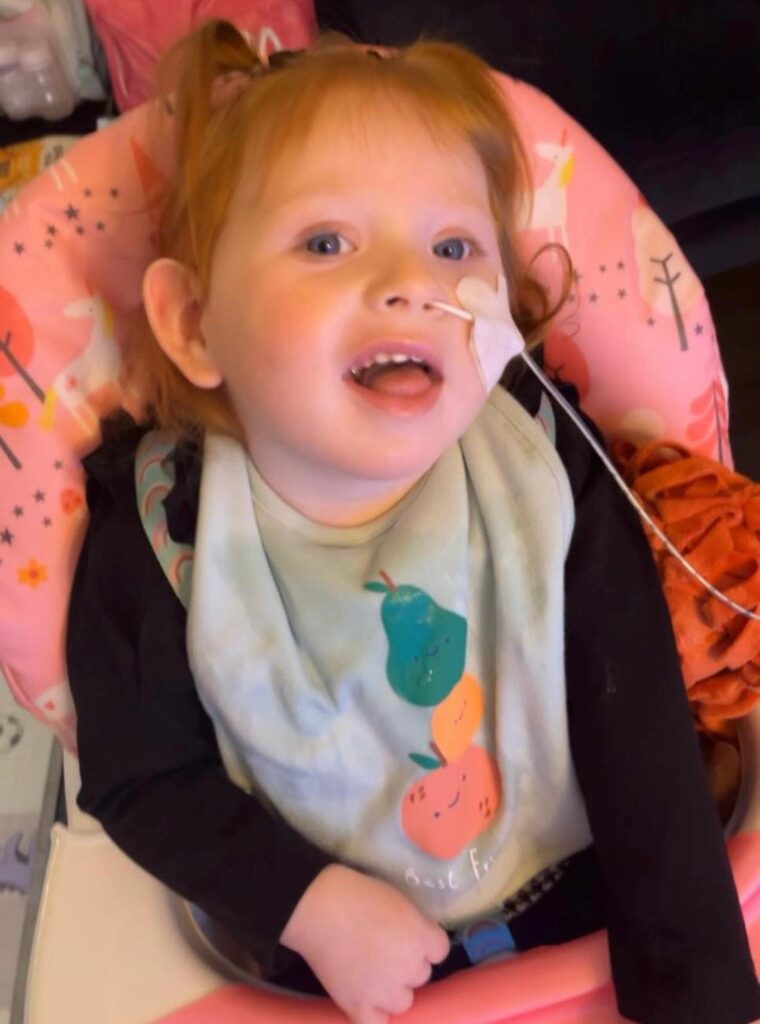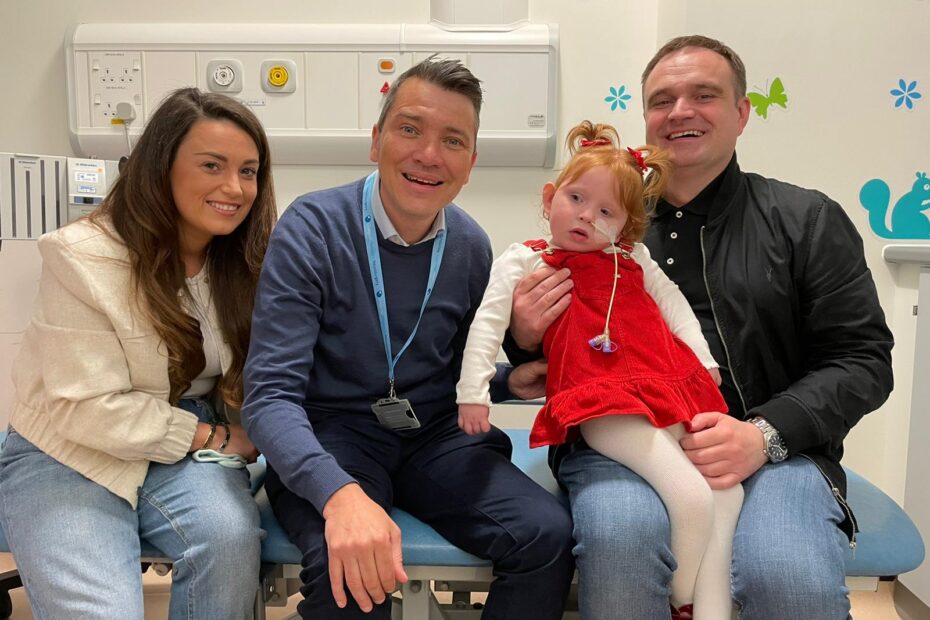
Georgia McLaughlan was 18 months when she had a stroke on a family holiday in June 2023.
The fun-loving toddler then went on to have a series of multiple other strokes that left her on her back and unable to move. Since then, Georgia has been diagnosed at the Royal Hospital for Children, Glasgow with Moyamoya disease.
Moyamoya disease is a rare blood vessel disorder in which the carotid artery in the skull becomes blocked or narrowed. The carotid artery is a major artery that brings blood to the brain. When it’s blocked, blood flow to the brain is reduced. Tiny blood vessels then develop at the base of the brain to supply the brain with blood.

In September 2023, Georgia underwent a rare surgery called revascularization on the left side of her brain with NHS Greater Glasgow and Clyde Neurosurgeon, Mr Roddy O’Kane. In April 2024, Mr O’Kane operated on the right side. Mr O’Kane explained:
“Typically, Moyamoya disease only affects one side of the brain, but for Georgia it affected both.
“Moyamoya disease usually affects one in a million, but due to how progressive it was for Georgia, she was seen as one in 10 million.
“It is rare to perform these surgeries so close together and there would usually be a gap of at least a year, but Georgia’s condition was progressing too quickly to wait that long. We had to monitor her and time it for after she had enough time to heal but not too long that it would have a negative impact on her,” he said.

Since Georgia’s stroke in June 2023, she has been receiving additional fluid, due to Hypohydration. She needed 150% more fluid than an average person, and the additional fluids were helping to prevent any further strokes from happening. This meant getting fluids every single day, which also continued from her first surgery in September to her second, meaning her parents Kirsty (38) and Andrew (39) have had to come into hospital every single day.
Georgia’s mum, Kirsty, explained the impact that the surgery has had. She said:
“We have all been learning as we go because Moyamoya is such a rare condition. Nobody was aware of what Georgia was capable of, but the team have been amazing. They have been so patient, even with Georgia’s strong will.
“It can take six months to a year to say that everything is fully successful, so Georgia will get another angiogram in April 2025 to see how everything is looking.
“Previously, we would come to the hospital every day if Georgia needed to receive her fluids, we didn’t know the risk factor of what would be involved if we stopped it. Now that she has had both surgeries, we are hoping that the hypohydration will stabilise, and she will eventually be able to get her central line removed,” she said.
The family are incredibly grateful to Mr O’Kane and the surgical team and have also highlighted the importance of the teams involved in Georgia’s recovery.
“Since the first stroke she has been learning how to walk, talk and eat again. We have physiotherapy, occupational therapy, speech, and language community teams come out to the house to help. We are already seeing small changes in her and it’s incredible how well she is doing considering when she had brain surgery.
“Her swallow is now safe, and she can now stand with the support of her physio. Her next step is that she is ready for a walking frame. Once we have her walking and feeding safe, we can remove her NG tube,” she said.
The interactive play and occupational therapy input has Georgia coming on leaps and bounds. After the second stroke she was lying completely flat, couldn’t hold herself up independently, and couldn’t hold her neck up, she struggled to swallow.
“Every Thursday the CHAS nurses come out and give us a bit of respite. It’s great. Georgia absolutely loves them. Georgia has also been accepted for a nursery placement for the new term, which we are hoping will really help her continue to develop.
“Three strokes and two brain surgeries, and she has taken it all in her stride. She’s an absolute superstar,” said Kirsty.

